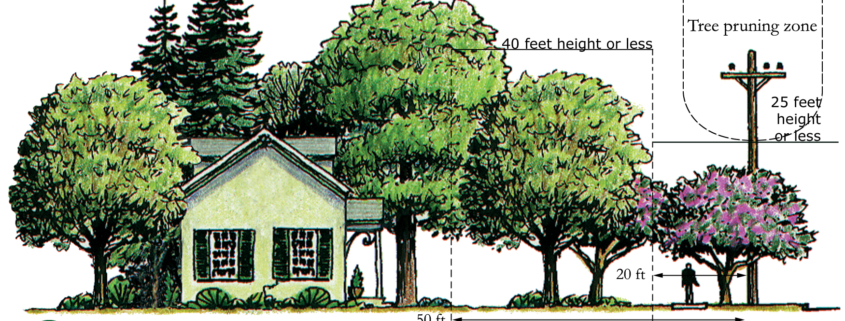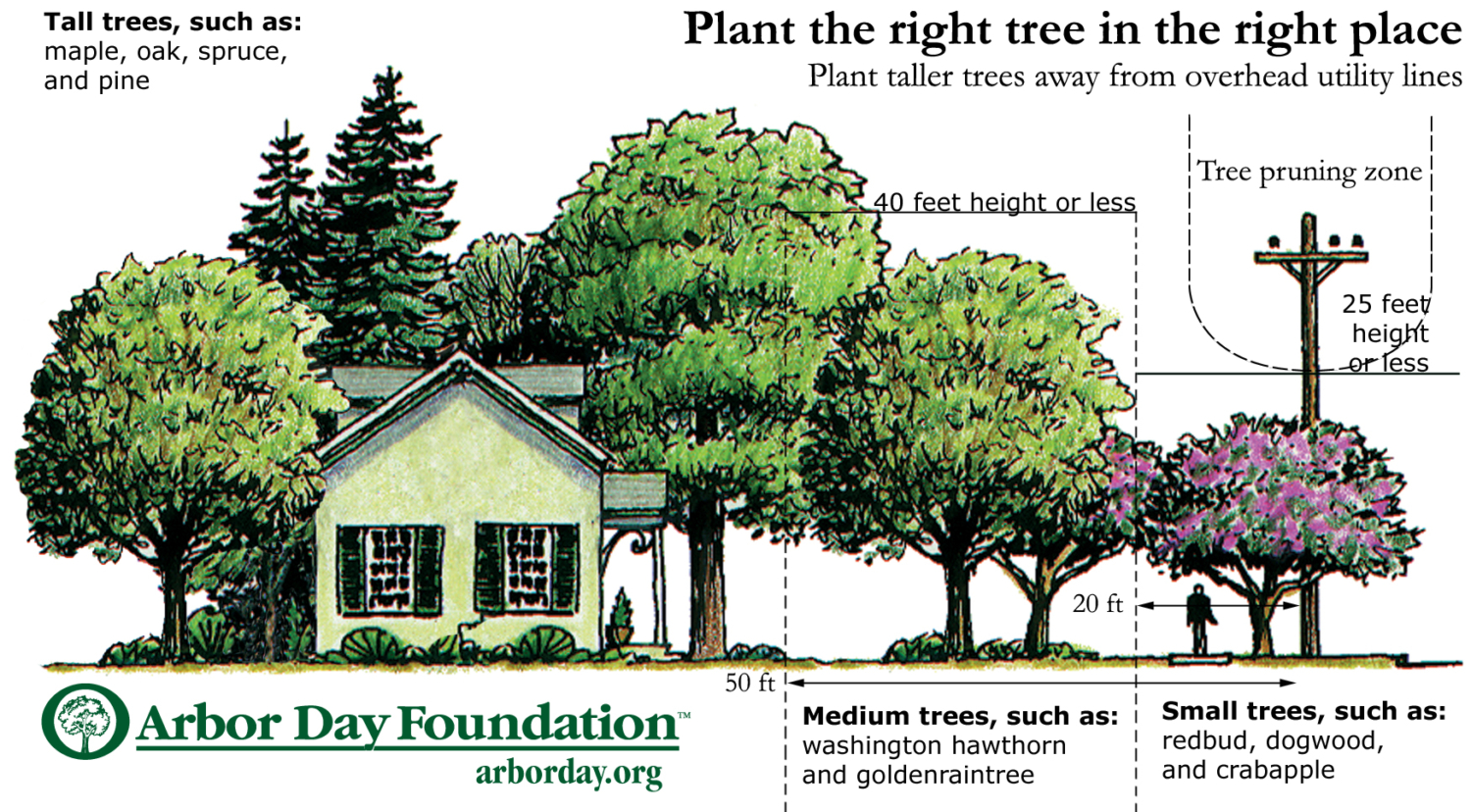Think before you plant, call before you dig
We’ve all been there. You’re at the garden center of your favorite big box store, or perhaps you’re visiting the local plant nursery. Maybe it’s the first really warm day of spring — the one that makes you want to get out there and plant something.
There are flowering shrubs in pots and all kinds of plants in flats from which to choose. And then the balled and burlapped trees catch your eye. Digging doesn’t seem like a whole lot of work when you’re anxious to get your hands dirty. Some extra shade sure would be nice when summertime rolls around. And a flowering tree would add a lot to the landscaping.
“That’s the moment to stop and think about what that tree will look like when it’s fully mature,” says [INSERT NAME OF CO-OP, TITLE, EMPLOYEE NAME] “We all enjoy the beauty that trees bring to our landscapes. They provide important environmental benefits, and they add to our property values. But when they become so tall that they interfere with power lines, that’s a problem. High winds can bring tree branches into contact with these lines, and power outages can often be the result — not just for you but also for your neighbors.”
The best way to avoid this is to make sure the sapling you’re planting won’t eventually grow so large as to cause issues. Do a little research before your purchase to determine the mature height and width of that species. There are many beautiful small trees (flowering dogwoods and redbuds are just two examples) that are native to Tennessee and great power line-friendly choices.
“We always say, ‘Plant the right tree for the right place,’” says [NAME]. “If you have any questions about the advisability of a particular tree you’re considering planting, give us a call here at the co-op. We’ll be happy to help you make a good choice.”
And while you’re in the mood to get your hands dirty, here’s something else to keep in mind. Digging in your yard could result in inadvertent contact with underground utility lines — potentially injuring you or causing an interruption in your electric service. Before you pick up a shovel, always call 811. At no cost to you, your underground utility lines will be located and marked prior to the start of your project. One quick phone call prevents accidental contact. It’s easy, it’s free and it’s the law. Call before you dig!






Leave a Reply
Want to join the discussion?Feel free to contribute!